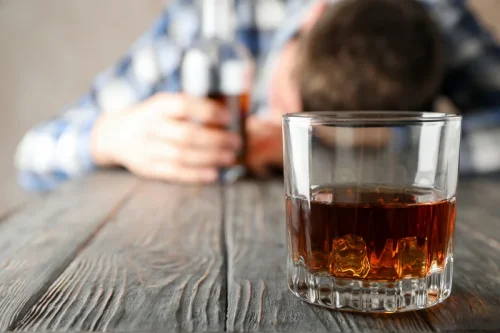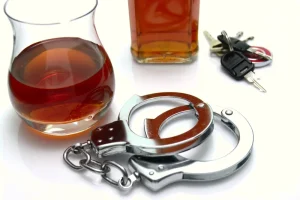What’s The Onshore And Offshore Currency Market? Iifl Knowledge Heart
May 27, 2024Greatest Encrypted Messaging Apps For Use Throughout Mac, Ios, Android, And Home Windows
May 29, 2024
The many ingredients in beer make an allergy to one of the specific ingredients more likely. You may also have a food sensitivity rather than an allergy. Health care providers often first make sure a person’s symptoms aren’t caused by allergies.
Side Effects of Mixing Alcohol With Caffeine

Wine – both red and white – were often the worst offenders. As the exact cause of alcohol-induced sneezing is not fully understood, there is no foolproof way to prevent it. However, you can try avoiding specific alcoholic beverages or reducing your alcohol consumption to see if it makes a difference.

When to see a doctor
- If you have strange symptoms soon after drinking, your body may not be processing alcohol properly.
- If you find that warm drinks make you sneeze, try chilling them before you drink them.
- While alcohol content does not directly cause sneezing, it can contribute to nasal congestion or irritation, potentially triggering sneezing in some individuals.
- Avoid the beverage or beverages that seem to cause your reaction until your doctor’s appointment.
- An allergy or intolerance to alcohol is not always responsible for symptoms occurring after drinking alcohol.
New research suggests the risks of even moderate or light drinking may outweigh the benefits. In June, the World Health Organization said that no level of alcohol consumption is safe for our health. And a new study funded by the National Institutes of Health found that binge drinking among adults ages 35 to 50 has reached historic levels. A protein on the skin of a grape, mostly those in red wines, can contribute to symptoms in those who already have allergies, according to a German study. In most cases, alcohol-induced sneezing is harmless and merely an annoyance. However, if you experience severe or persistent symptoms, it is advisable to seek medical advice.
Is alcohol-induced sneezing similar to alcohol flush reaction?
The sneezing reflex after drinking alcohol is primarily caused by vasodilation, which increases the sensitivity of the nerve endings in your nasal passages. If you might have an intolerance instead of an allergy, you could see a gastroenterologist, a healthcare provider specializing in digestive issues. If they are not sure what is causing your symptoms, they might want you to see an allergist, a healthcare provider that specializes in allergies and asthma.

If you’re allergic to a specific grain, beer won’t be your only problem. You’ll also experience symptoms when you eat other food products containing that allergen. If your symptoms are very mild, you may have a food sensitivity rather than a true why do i sneeze when drinking alcohol allergy. It can be uncomfortable, but it’s not an immune system response and isn’t as serious. If you’re looking for a way to prevent sneezing when you drink, try making your cocktails with fresh fruit juices instead of using pre-made mixes.
For some people, alcohol can also make allergy symptoms worse. Having sluggish ALDH2 enzymes, or lower levels of it altogether, is ultimately the product of having genetic variation in your ALDH2 gene. Specifically, genetic changes that make your corresponding ALDH2 enzyme bad at its job. What’s more is that this genetic variation can be passed down from parent to child, making alcohol intolerance an inherited condition. And since it affects your genes, once you inherit it, you’re stuck with it.
If you find that warm drinks make you sneeze, try chilling them before you drink them. This will help to soothe the mucous membranes in your nose and prevent them from swelling and triggering a sneeze. Spirits such as vodka and gin can also cause sneezing due to the presence of histamines. In addition, some people find that the alcohol in these drinks irritates their nose, leading to sneezing. Like wine, beer also contains histamines, which can trigger sneezing. In addition, beer is often brewed with hops, comprising a compound called lupulin.
- If people do not produce enough of this enzyme, they may not break down histamine efficiently, which may lead to intolerance symptoms.
- Wheat allergies are increasingly common around the world.
- Avoiding those foods can help you avoid sneezing after eating in the future.
- Yes, certain ingredients in alcoholic beverages, such as sulfites in wine or hops in beer, can be more likely to induce sneezing in susceptible individuals.
- Some people don’t have enough of an enzyme called aldehyde dehydrogenase (ALDH).

On this plan, you’ll cut a specific food out of your diet to see if your symptoms get better. Then, you’ll try to add the food back in later to see if your symptoms come back. A food and symptom diary can help you keep track of when your symptoms appear and whether they line up with certain things—such as alcohol. If you get gustatory rhinitis, there are many treatments and management methods to choose from.
Sometimes it’s an alcohol allergy, not alcohol intolerance

In those with a serious wine allergy, a single milliliter of alcohol can trigger a reaction. These steroid nasal sprays are available over-the-counter under brand names such as Flonase Allergy Relief and Nasacort. The maximum effect won’t be achieved for several days or weeks. Like antihistamines, these sprays are most effective if they’re used regularly.
